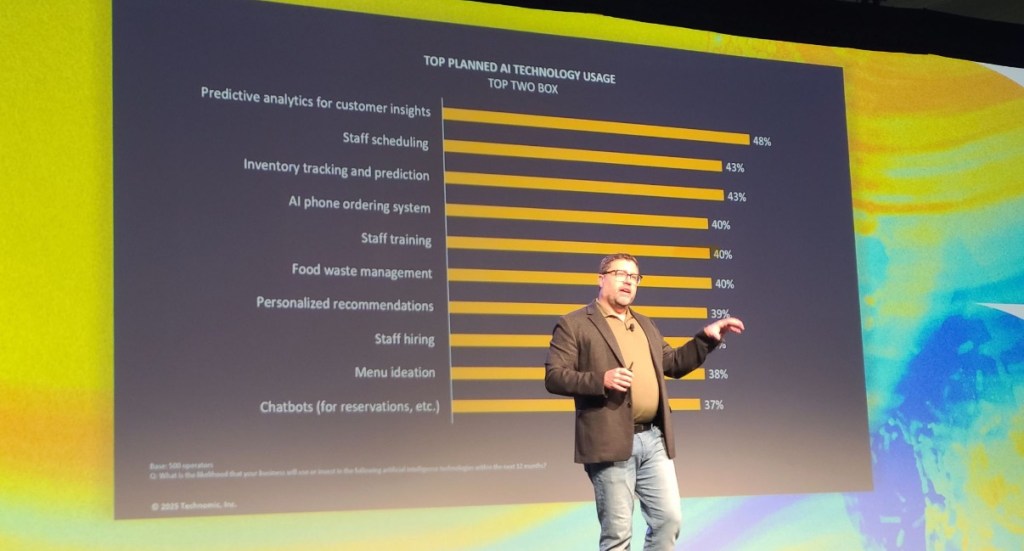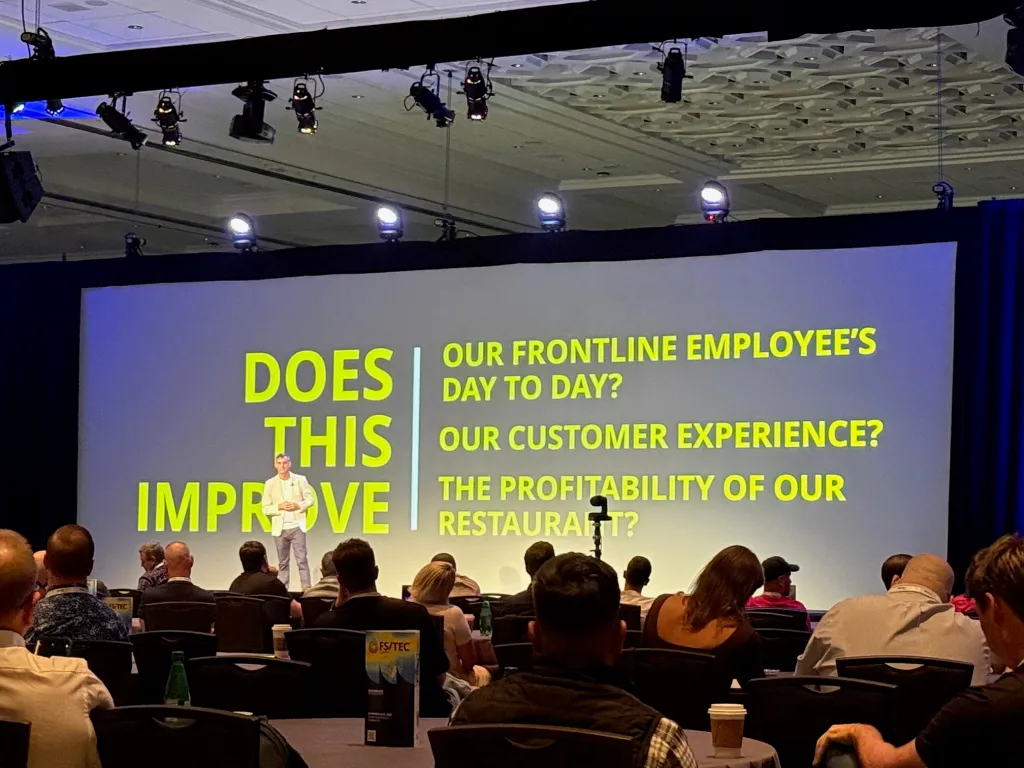FS/TEC 2025 Recap: From Ironing Tablecloths to Tech That Sells
Before the booths opened at FS/TEC 2025 in Orlando, I found myself ironing tablecloths for our booth setup—something I hadn't done since high school home economics class. Let's just say tablecloth number two didn't survive the process. But startup life teaches you that improvisation is a core skill, and sometimes the best preparation comes from embracing the unexpected.
The truth is, ironing tablecloths was just the warm-up. The real pressing (pun intended) happened throughout the conference. Restaurant leaders were asking sharper-than-ever questions about technology, and the message came through loud and clear with three must-answer questions for any tech investment:
Does this improve our frontline employees' day-to-day experience?
Does this enhance our customer experience?
Does this directly impact restaurant profitability?
If the answer isn't yes to all three, the solution doesn't earn a place in the restaurant tech stack.
Where Operators Are Investing in AI

The data from one presentation revealed clear priorities for AI investment over the next twelve months. Restaurant operators are focusing their technology budgets on solutions that deliver measurable operational impact:
Predictive analytics for customer insights (48%)
Staff scheduling optimization (43%)
Inventory tracking and prediction (43%)
AI-powered phone ordering systems (40%)
Staff training and development (40%)
Food waste management (40%)
Personalized recommendations (39%)
Automated staff hiring processes (38%)
Menu development and ideation (38%)
Chatbots for reservation management (37%)
This data tells a clear story: AI has moved beyond the experimental phase. Operators are now investing in specific applications where artificial intelligence can deliver tangible improvements to efficiency, margins, and guest satisfaction.
Palona’s Perspective: Technology That Answers the Big Questions
At Palona AI, these priorities align directly with our development focus. Our solutions are built specifically to pass the three-question test that restaurant leaders are applying to every technology decision.
Voice AI Agent
Phone operations quickly convert, with every call becoming a first-party order or reservation.
The system handles complex menus, dietary restrictions, and multilingual interactions while freeing staff to focus on in-person guests.
Natural conversation flow includes strategic upselling that increases average order value without feeling pushy or scripted.
AI Catering Manager
Automate the complete catering workflow from initial inquiry → proposal → deposit → day-of execution → post-event follow-up.
The system responds immediately across web, phone, and email channels to capture high-value opportunities that might otherwise be lost during busy service periods.
By managing the administrative complexity of catering operations, it transforms one-time events into repeat, high-margin accounts.
Both solutions directly address the operational challenges restaurant leaders discussed throughout FS/TEC: reducing staff workload during peak periods, creating more consistent guest experiences, and driving revenue growth through better order capture and strategic upselling.
The Path Forward
FS/TEC 2025 demonstrated that the next phase of restaurant technology isn't about impressive demonstrations or cutting-edge features. Success comes from solutions that deliver on the fundamentals: they sell, save, and scale hospitality.
For us at Palona, it was inspiring to see our Voice AI and Catering AI validated as exactly what operators are asking for. And while I may never master the art of ironing tablecloths, I'm committed to building AI that consistently delivers the real-world impact restaurant operators are demanding.
Maria Zhang
CEO, Palona AI
